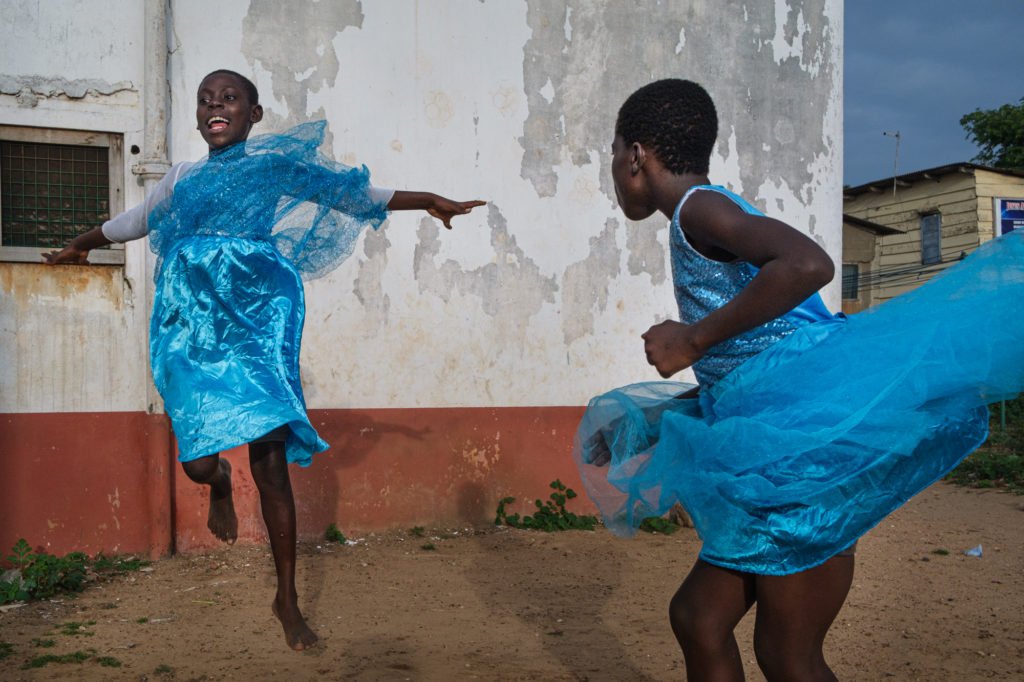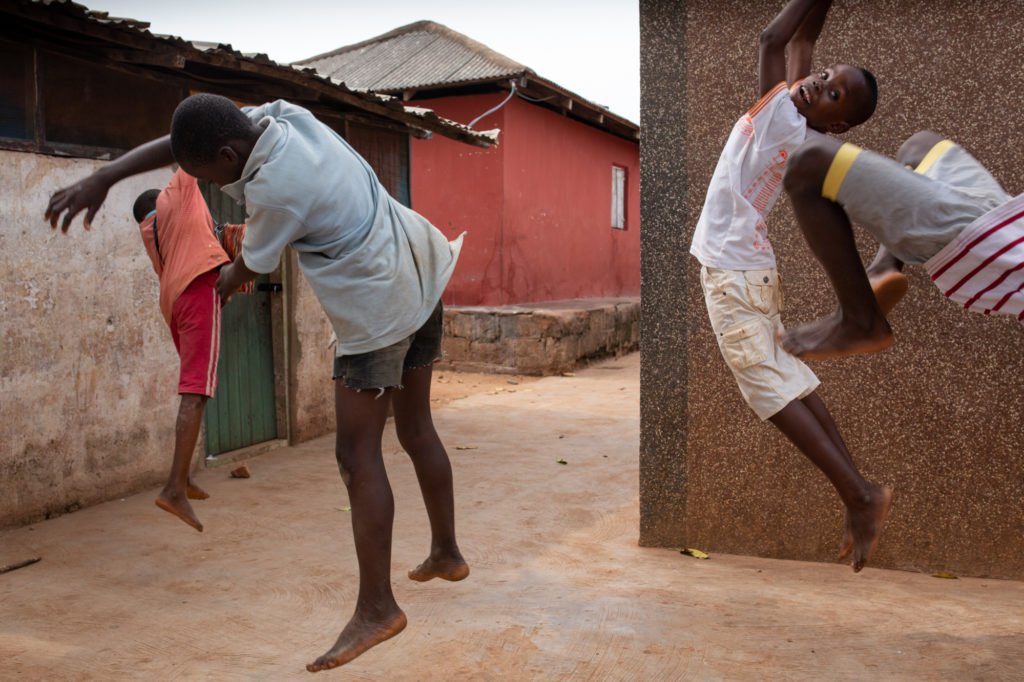
WHO?
My name is Regula Tschumi and I am Swiss. I live in Berne and spend several months every year in Ghana. I worked a long time as a flight attendant for Swissair, but in 2000 I left my job to study social anthropology, art history and religious studies in Berne. In 2012 I completed my studies with a PhD in social anthropology. Today I work as a freelance cultural mediator and photographer in the field of arts and museums.
Photography I found late in my life, after I had finished and published my PhD in 2013.
I grew up in a family where the visual arts always played an important role. Both my paternal grandfather and my father were art collectors and talented watercolor hobby painters. As a child, and later also as a teenager during my school holidays, I used to accompany my grandfather when he went out to do landscape painting. So at an early age I not only learned the basics of drawing and image composition, but also the use of color, and all this surely shaped my eyes for my later photography.
My first camera I got during high school. It was a gift from my parents, a beautiful small Rollei 35. I kept it many years, but I never really used it a lot. Even when working as a flight attendant and traveling all over the world, I still preferred to draw and paint sketches, at least when I had enough time. It was only when I started studying social anthropology that photography became more important for me. Then I had bought my first digital camera to document my field research in Ghana, but with no ambitions to become a photographer. Then, after writing my thesis, I got in 2006 the chance to publish my research, and that was the moment I realized that I should have done better photographs. When between 2007 and 2012 I spent again a very long time in Ghana for my PhD research, I started to pay attention on my photo documentations, because I knew I would need my images later for another book.
When I finally completed all my work connected with my PhD, I had in 2014 enough time to dedicate myself more seriously to photography, and I started with taking my first photo workshop. This really woke me up, I felt like I had to change everything I had done before. I also had never done street photography before, it was a new experience. It was a tough–but also an extremely interesting week–where I had learnt a lot. And as soon as I came back home I booked another workshop. I understood that I needed a teacher to guide me if I wanted to improve my photography. In the following years I kept doing one or two workshops per year. And this surely helped me not only to sharpen my eyes, but also to improve my documentary and especially my street photography.
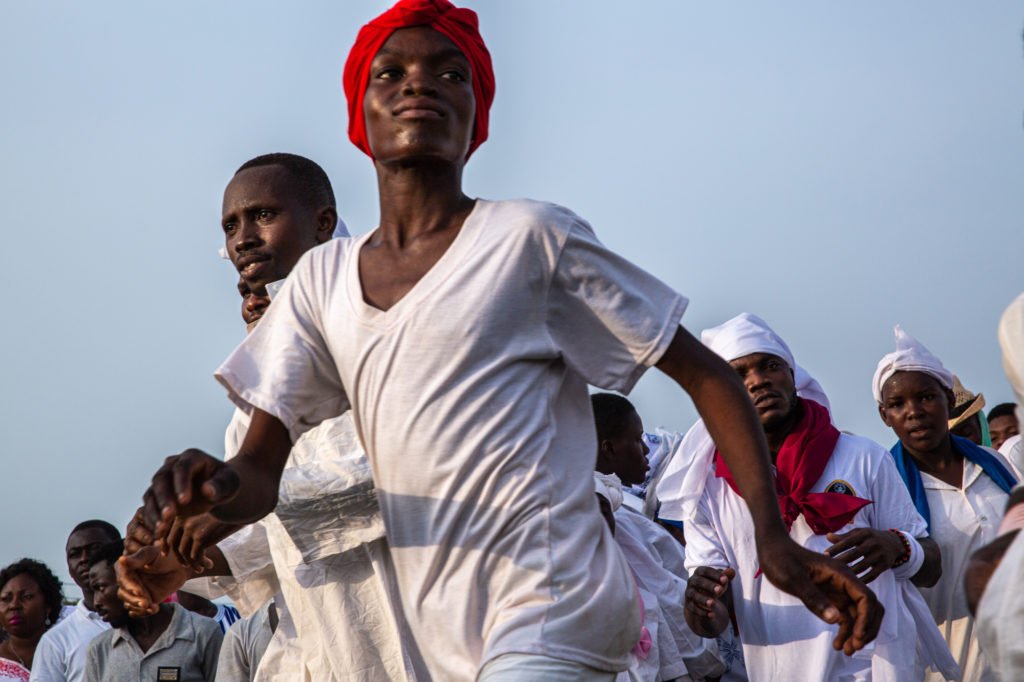
WHAT?
I mostly photograph people, wherever they are and who inspire me aesthetically. I am always attracted to color and good light when I search for beauty. If possible I shoot in the early morning or in the late afternoon when I find the best light.
I especially like to photograph people who are active, who dance, play, sell, pray or do anything that keeps them from noticing me. I love to follow movements with my camera, trying to react fast while still keeping an eye on the framing. But I also enjoy photographing more quiet scenes, especially people in their houses.
When I am in Ghana, I primarily deal with the very complex rituals of the traditional priests and priestesses, especially their possession cults and their initiation and funeral rites. Of course all these events that I have already documented for several years never go according to plan, so I need to be flexible and I often have to change my schedule at short notice. Whenever a ritual is not taking place, I have time to explore the everyday life around me. Sometimes I travel quite far to villages, and I photograph marketplaces, fishing harbors, festivals, churches and more. I usually let myself be inspired by whoever I meet and whatever see on my way. However, random street photography is not common in Ghana, people are very suspicious and I usually need a lot of patience to photograph them. I hardly make candid shots, because there is always someone watching me, even if I don’t photograph people observe me all the time. To avoid any problems I normally ask before, or at least after having taking some images, and then I try to explain why I do it. And whenever possible, I bring back images when I return to Ghana.
When I plan to do street photography, I normally have already some ideas what I want to do or where I want to go, I don’t just walk around. I usually try to find places that are not too crowded and where I see a good background. I don’t like chaos and overlapping elements in my images, and I compose and I frame my subjects, like I used to do in my drawings. Sometimes I wish to leave my rather classic sense of order behind me and be more crazy, more open to new and for me unusual compositions.
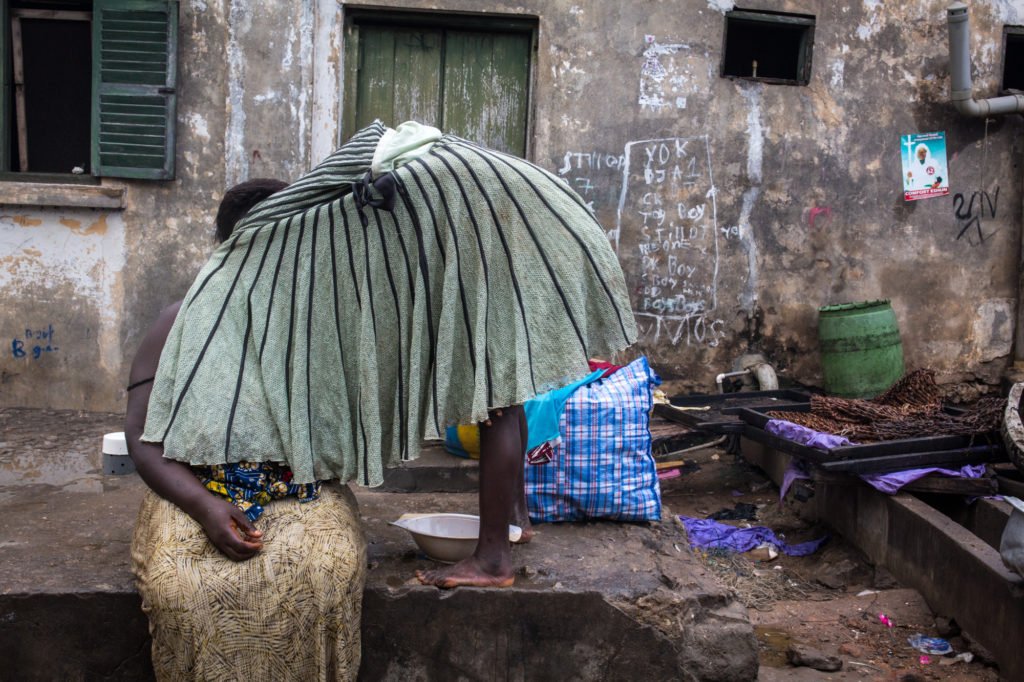
WHERE?
If there is good light, I can certainly photograph anywhere, as long as there is something that visually attracts me. I do not shoot much in Switzerland, I prefer to shoot when I travel or when I am in Ghana where I keep working on my projects. I know my way there, I know the culture, the various religions and to a certain extent also the language, and all this helps me enormously in my photography. I also have built up a close relationship of trust with various religious groups, and this enables me to take part in their ceremonies and to get a chance to photograph. I know that this is a very big privilege and therefore it is also the main reason why I keep going back to Accra. I am sure that if I had done my research in another country, I now would be taking my photos there. I believe that wherever I would go deep into a culture and focus on a project, I could find photography very exciting. So for now, I don’t need to travel to any other places to be more inspired, I rather keep going back to places I already know very well. By doing this I discover how little I would have seen of many events and places if I had gone there only once.
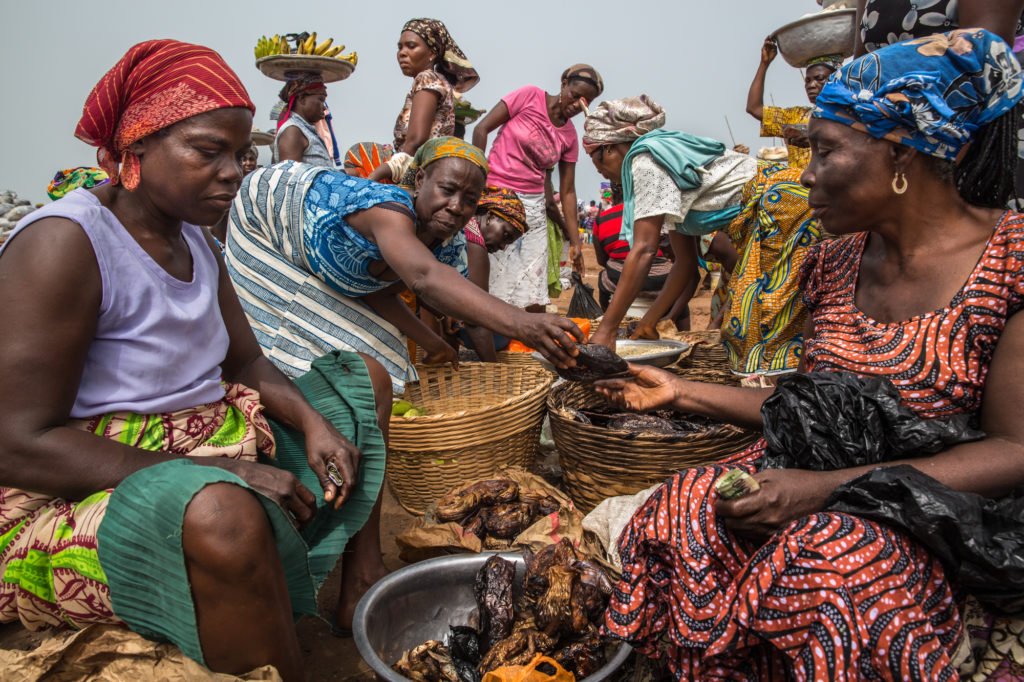
WHEN?
I take pictures whenever my surrounding inspires me, in Europe mainly when I am travelling for work. In Berne I am not photographing, or at most I do some snapshots with my phone. This is because working in my office and at the same time to photograph is too much for me. I need much time for both, and especially in photography I need to put myself in the right mood. At home I am too distracted from all kinds of other work. But when I am at home I take my time to watch and edit my photographs. I also go to photo exhibitions, or I read and look at photo books, so there is a lot to do without holding a camera in my hand. The second “when” in photography means the moment when I shoot. Since I started photography with an analog camera I still don’t shoot too many photographs. Of course, in digital photography we can make very fast photo series and then hope that one of them will be good. But I don’t really like this method, I’d rather wait, observe and then click a few times, when the moment has come.
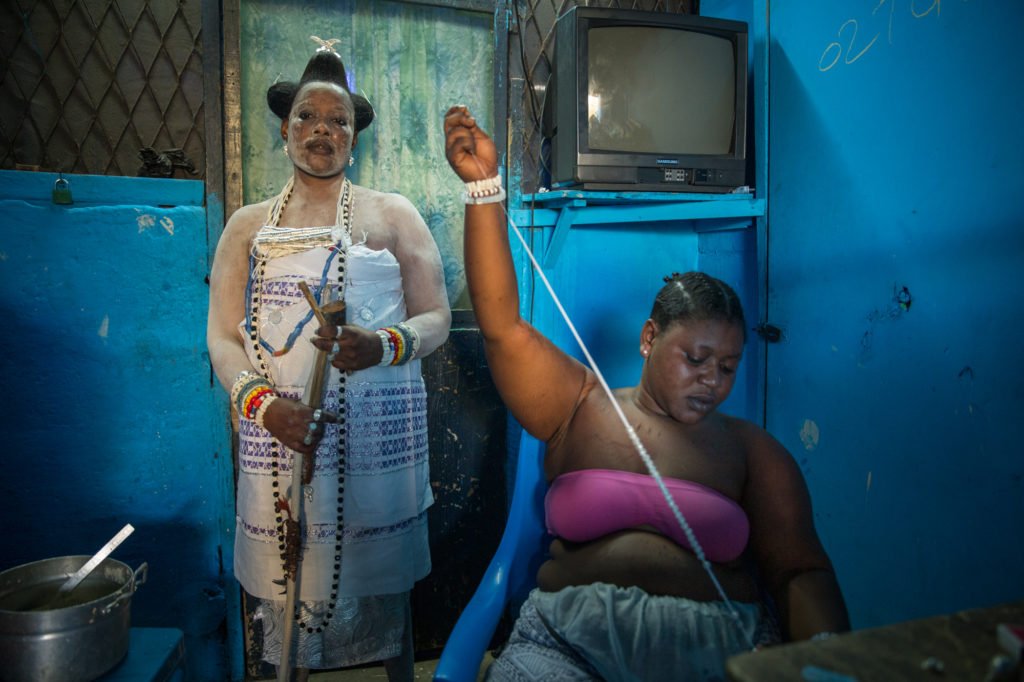
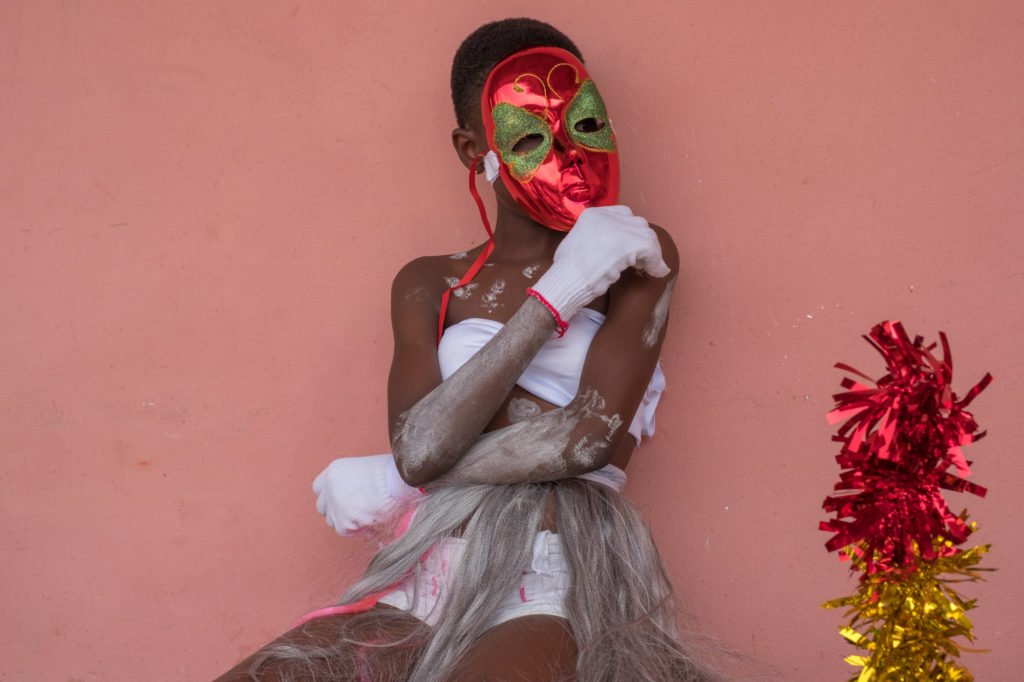
WHY?
There are several reasons why I photograph. The most important is surely that it makes me happy and it is a way for me to discover the world. Thanks to photography I have visited some incredible places, I have had conversations with some wonderful people and I have made many new friends. All this would never have happened without using a camera.
Photography has also become very important for my anthropological work. In the past few years my documentary photographs, especially those about the funeral rituals in Ghana, have been shown in many museum exhibitions related to this topic, and they have also been printed in many books, magazines and newspapers. I also use these images for lectures when I am invited to museums to talk about my work. I am still building up my archive, and I am still holding back my other collection of documentary photographs: the traditional rituals and possession cults in southern Ghana. These images are also part of a long-term project, which hopefully ends one day with a book publication and an exhibition. My street photography from these last years I have done just for my own pleasure. I had never thought I could use any of these images apart from posting them on Instagram. But then the prestigious German GEO magazine published one of my street photographs on a double page in their January edition 2020, and with the same photograph I won a prize at the Miami Street Photography Festival 2019. This was all a very big surprise to me and it encourages me to keep shooting and to continuing my work.
